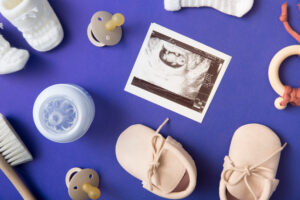Parents often become concerned when their child fails to reach certain milestones by certain ages; however, not all delays are the result of medical problems.
Rolling over, smiling, babbling, sitting up and crawling are among the typical motor milestones that typically appear over a set period of time. Physical developmental delays could include being unable to hold their head upright when placed on their stomach and grasp objects or move like a bottom shuffler.
Motor Skills
Infants and children typically develop motor skills within the first months of life by moving their arms, legs and trunk. If these milestones aren’t reached by an expected age, developmental delays may ensue.
Developmental delays can have an adverse impact on both gross and fine motor development. Gross motor delays affect large muscles like those found in arms and legs while fine motor delays impair small tasks like grasping a spoon with their hands.
Though every child develops at different rates, and some reach milestones more rapidly than others, physical developmental delays that persist can be an indicator of an underlying condition resulting from something prior, during, or post birth that caused medical negligence.
Your child should visit his or her pediatrician regularly for screenings to evaluate his or her growth and development, which includes developmental screenings using standardised tests at 9-, 18-, and 30-month well-child visits. In these appointments they can identify any delays through medical evaluation or referral to specialists if any are detected. According to AAP recommendations all children receive general developmental screening using these standardized tests at these visits.
Social Skills
Many parents become concerned when their child does not appear to be smiling at others or crawling at an age typical of other children their age. While such behaviors could indicate developmental delays, they could simply be part of normal progression as seen across all children.
However, if your child seems withdrawn from other children or appears lagging behind in social development, this could be an indicator of developmental delay. Issues associated with developmental delay range from delayed speech due to an ear infection all the way up to more long-term issues like autism spectrum disorders.
Cognitive delays refer to a child’s inability to think and interact with their environment, including not greeting other children when approached, becoming scared when approached by strangers, not showing interest in toys or people and failing to grasp basic tasks such as waving back and forth with hands. Symptoms can include not smiling back at other children when approached by newcomers or being fearful when approaching new people; failing to show interest in toys or people and failing basic tasks like waving back and forth with hands.
Some symptoms can be managed through behavior and skill-oriented therapy, with optimal results when implemented as soon as possible. If you suspect your child is experiencing developmental delays, make an appointment to visit with the pediatrician regularly at well-child visits and get evaluated by specialists in child development; some delays will likely go away over time while others could require permanent solutions and specialized attention.
Communication Skills
Children often reach milestones at different rates in learning, playing, speaking and movement. Minor temporary delays usually don’t cause much concern. But any child lagging behind significantly in multiple areas could be experiencing developmental delay.
Children develop communication skills in many different ways, from voice, facial expressions and body language to writing skills. Communication is integral for getting along with others, learning new information and expressing feelings. Delays can have serious repercussions in cognitive and social/emotional development – such as difficulties understanding other people’s emotions or adapting to changes to routine. If communication delays affect social/emotional development too heavily they may struggle understanding emotions in themselves or managing changes better – leaving them struggling with understanding directions as well as communicating.
if your child seems to be falling behind developmental milestones or developing slower than other children their age, consult with a pediatrician or specialist immediately. They can perform a medical assessment and/or refer your child for educational assessments; lower referral thresholds may apply in cases such as premature babies born early; those living in challenging circumstances; chronic medical conditions and those born preterm. Our team at Sokolove Law can also assist if complications before, during, or immediately post labor caused delays and file claims on your behalf for compensation on their behalf.
Language Skills
Children begin learning communication through cries, smiles and interactions with others; however, not all babies develop these skills at the same pace. A developmental delay could indicate an underlying condition; therefore it is essential that you know what signs to look out for and consult your child’s physician should you notice that milestones aren’t being reached on time.
Cognitive developmental delays may be caused by trauma such as brain injuries sustained during birth or medical procedures. They may also result from illnesses like encephalitis or meningitis as well as chromosomal disorders like Down syndrome.
Speech and language delays may be caused by hearing loss due to frequent ear infections, learning disabilities or neurological conditions; they may also result from cerebral palsy, ataxia (a disorder affecting muscle coordination) or physical impairment such as spina bifida.
At times, children will miss developmental milestones; if this is happening frequently in your child, consult their pediatrician immediately to evaluate and potentially treat a developmental delay with early intervention services or other methods.





